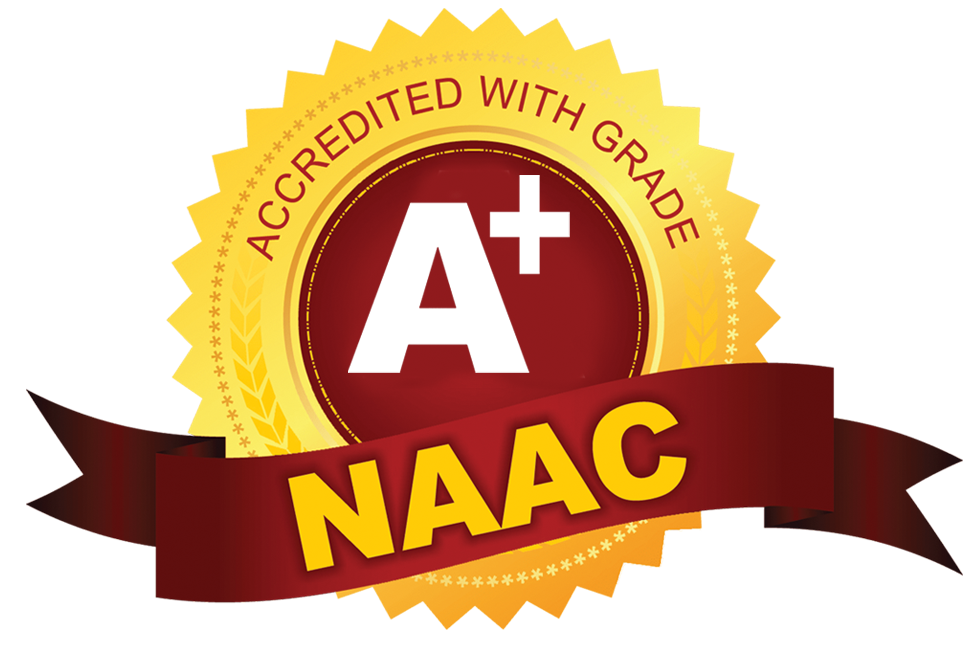The Biomedical Engineering (BME) is concerned with the design, development and technical support of medical equipment used by the healthcare industry. The department of Biomedical Engineering, which became a part of this prominent institution in the year 2019, is one of the leading fields of technology in India. The department has experts in their own disciplines, which educating and training students with complete knowledge and awareness in the latest trends in electronics, bio-medical engineering and bio technology. The department provides clinical and industrial driven curriculum and interactive learning opportunities for modern biomedical instruments with Laboratory. Biomedical engineers are imperative for everything that accounts for enhancement of human health and healthcare delivery systems. They are of paramount importance by integrating technology with human systems, and have led to development of many life-saving medical devices.
Ø Provide a structured curriculum that bridges engineering with biological science.
Ø Offer required training that encourages the application of engineering techniques in the field of biomedical with societal context.
Ø Create an environment conducive to undertaking research and innovative projects, and foster collaborations with healthcare providers.

Quality
Teamwork
Transparency & Integrity
Societal Services
Woman Empowerment

The vision of the Biomedical Engineering department is to produce competent biomedical engineers to enhance healthcare and augment the wellbeing of society.

PEO1: Attain the basic knowledge in biomedical engineering to lead a successful professional career.
PEO2: Assess and resolve the issues related to social values relevant in the field of biomedical engineering.
PEO3: Engage in lifelong learning by participating in professional activities and carrying out Biomedical research.
PEO4: Acquire essential abilities and interpersonal skills to lead a team with ethics for success.
PO1: Engineering Knowledge: Apply knowledge of mathematics, natural science, computing, engineering fundamentals and an engineering specialization to develop to the solution of complex engineering problems.
PO2: Problem Analysis: Identify, formulate, review research literature and analyze complex engineering problems reaching substantiated conclusions with consideration for sustainable development.
PO3: Design / Development of Solutions: Design creative solutions for complex engineering problems and design/develop systems/components/processes to meet identified needs with consideration for the public health and safety, whole-life cost, net zero carbon, culture, society and environment as required
PO4: Conduct Investigations of Complex Problems: Conduct investigations of complex engineering problems using research-based knowledge including design of experiments, modelling, analysis & interpretation of data to provide valid conclusions.
PO5: Engineering Tool Usage: Create, select and apply appropriate techniques, resources and modern engineering & IT tools, including prediction and modelling recognizing their limitations to solve complex engineering problems.
PO6: The Engineer and the World: Analyze and evaluate societal and environmental aspects while solving complex engineering problems for its impact on sustainability with reference to economy, health, safety, legal framework, culture and environment.
PO7: Ethics: Apply ethical principles and commit to professional ethics, human values, diversity and inclusion; adhere to national & international laws.
PO8: Individual and Collaborative Team Work: Function effectively as an individual, and as a member or leader in diverse/multi-disciplinary teams.
PO9: Communication: Communicate effectively and inclusively within the engineering community and society at large, such as being able to comprehend and write effective reports and design documentation, make effective presentations considering cultural, language, and learning differences
PO10: Project Management and Finance: Apply knowledge and understanding of engineering management principles and economic decision-making and apply these to one’s own work, as a member and leader in a team, and to manage projects and in multidisciplinary environments.
PO11: Life-long Learning: Recognize the need for, and have the preparation and ability for i) independent and life-long learning ii) adaptability to new and emerging technologies and iii) critical thinking in the broadest context of technological change.
PSO1: To acquire knowledge of the fundamentals of engineering and the basics of biological science.
PSO2: To build diagnostic, therapeutic and life assist systems with ethical standards and ensure patient safety.
PSO3: To apply software expertise to develop algorithms for solving health care related problems.
9952729092
hod_bme@psr.edu.in
Head Dept. of Electrical and Electronics Engineering, P.S.R. Engineering College, Sevalpatti, Sivakasi – 626 140, Virudhunagar District, Tamil Nadu, India. muniraj@psr.edu.in
Head Dept. of Computer Science and Engineering, PSR Engineering College, Sevalpatti, Sivakasi – 626 140, Virudhunagar District, Tamil Nadu, India. ramathilagam@psr.edu.in
Head Dept. of Electronics and Communication Engineering, PSR Engineering College, Sevalpatti, Sivakasi – 626 140, Virudhunagar District, Tamil Nadu, India. valarmathi@psr.edu.in
Curabitur ac tortor ante. Sed quis iaculis risus. Ut ultrices ligula aliquet odio tristique euismod. Donec efficitur dolor in turpis aliquet, at mollis.
Curabitur ac tortor ante. Sed quis iaculis risus. Ut ultrices ligula aliquet odio tristique euismod. Donec efficitur dolor in turpis aliquet, at mollis.
Curabitur ac tortor ante. Sed quis iaculis risus. Ut ultrices ligula aliquet odio tristique euismod. Donec efficitur dolor in turpis aliquet, at mollis.
Curabitur ac tortor ante. Sed quis iaculis risus. Ut ultrices ligula aliquet odio tristique euismod. Donec efficitur dolor in turpis aliquet, at mollis.
Curabitur ac tortor ante. Sed quis iaculis risus. Ut ultrices ligula aliquet odio tristique euismod. Donec efficitur dolor in turpis aliquet, at mollis.
